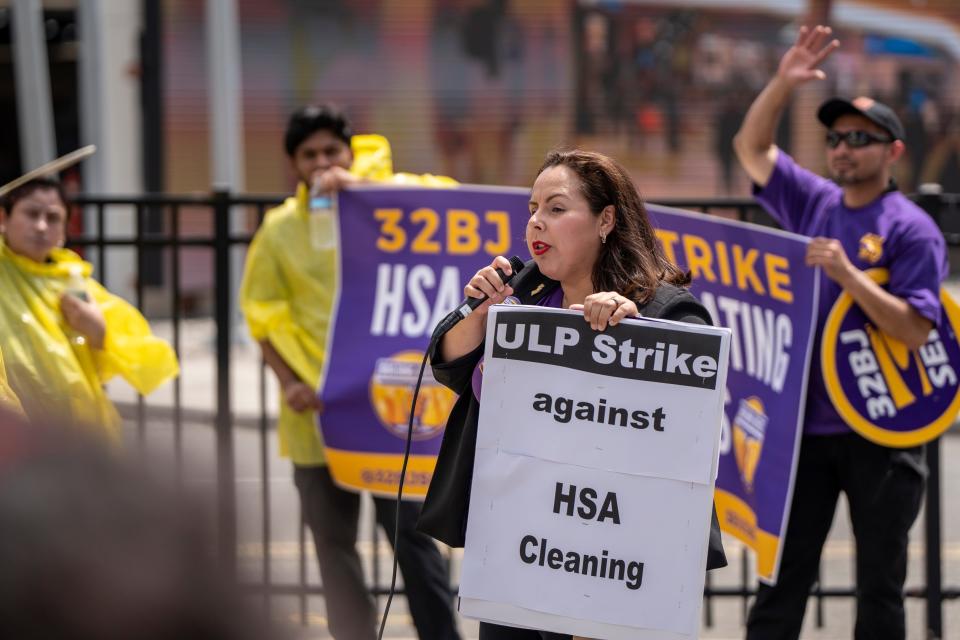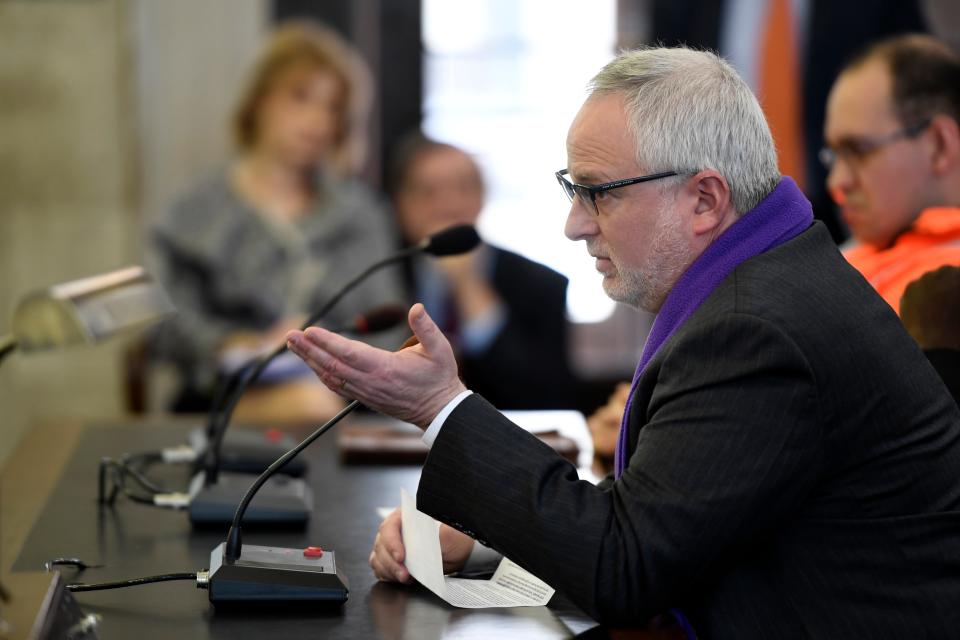Firm had to rehire fired workers at American Dream. Supreme Court ruling makes that harder
Over the past two years, a legal battle has played out at the American Dream mall in the Meadowlands over whether a duo of workers were fired for organizing a labor union.
The National Labor Relations Board eventually intervened on behalf of the two workers — Jose Terán and Luis Valera, who were employed by HSA Cleaning — and tried to get a court order for them to be reinstated at their jobs.
Ultimately, Terán and Valera got their jobs back this spring with backpay.
Story continues below photo gallery
But should a similar legal case play out now, workers might not have such luck, labor experts are warning.
That’s because of a U.S Supreme Court decision handed down Thursday siding with Starbucks over allegations that the global coffee chain fired seven workers for organizing a labor union.
What the high court said
Typically, the National Labor Relations Board has relied on court orders when it thinks a company is trying to illegally squelch union organizing campaigns.
After Starbucks fired seven workers at a Tennessee coffee shop — a group who became known in union lore as the “Memphis 7” — the union complained to the NLRB.
Starbucks said the workers were fired for violating company rules, such as when they invited a news crew into a closed coffee shop without authorization.

But the NLRB considered it likely Starbucks acted improperly and asked a court to order the workers be rehired while the board undertook a lengthy review to reach a final decision. A district judge ordered Starbucks to rehire the workers while the review was under way.
The global coffee giant took the case to the Supreme Court, arguing the judge should have used a tougher litmus test for the ruling.
The factors considered were whether there was reasonable cause to believe that Starbucks had committed unfair labor practices and whether the temporary relief was “just and proper," terms included in the National Labor Relations Act.
Other courts, however, evaluate requests using the traditional four-factor tests for injunctions not related to labor law.
The Justice Department argued that Congress set a limited role for courts because lawmakers didn’t want “wide-ranging district court involvement in labor disputes.”
The Supreme Court said Thursday that "absent a clear command from Congress," the four-factor test must be used and the district court must revisit its decision about the Memphis 7.
What it means for New Jersey workers
“For future injunctions, it’ll make it more difficult to obtain one as we did in this process,” said Kevin Brown, New Jersey director for 32BJ Service Employees International Union, the labor union representing the American Dream cleaners.

Brown said that after the April order, both workers were rehired with back pay. The NLRB argued that the termination of both workers could have a “chilling” effect on the union organization bid by the American Dream cleaners.
But a similar scenario — where the workers are fired and then given back their jobs after demonstrating that their termination was likely related to union activities — would be less likely to play out in the future, Brown said.
“In the past, you could fight that issue, and if you were in fact fired for union activity, you could be reinstated and possibly collect damages. But this sets that aside,” said Harvey Whille, president of the Local 1262 chapter of the grocery store union United Food and Commercial Workers.
The U.S. Court of Appeals for the Third Circuit — which includes New Jersey — historically sided with the NLRB and labor unions thanks to a more lenient "two-factor" test on whether there was reasonable cause to determine that an employer engaged in unfair labor practices, said James Cooney, a labor and employment law professor at Rutgers University.
That can no longer be the case, and it could mean that with yesterday's ruling, the federal court in New Jersey may be less likely to rule in favor of the NLRB and labor unions.
"It could make it harder for the board to intervene," Cooney said. "If a union was trying to organize somewhere and somebody was fired by the employer, the board might want to go into court to stop that and this might make it more challenging for the board."
This article contains information from USA Today
Daniel Munoz covers business, consumer affairs, labor and the economy for NorthJersey.com and The Record.
Email: munozd@northjersey.com; Twitter:@danielmunoz100 and Facebook
This article originally appeared on NorthJersey.com: Supreme Court ruling makes it harder to protect NJ workers

